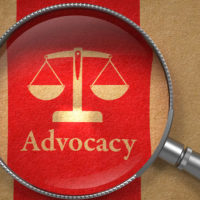How Does Section 1983 Help Protect Civil Rights?

Today we will discuss an important concept in federal civil rights litigation – a statute commonly referred to as “Section 1983.” Officially codified as 42 U.S.C. 1983, this statute provides a mechanism through which victims can bring private lawsuits for certain civil rights violations, including, among other things, police misconduct cases (including claims of excessive force and wrongful detention), claims under the Eight Amendment (including cruel and unusual punishment and medical malpractice actions for denial of medical attention or inadequate medical attention in detention settings), and denial of First Amendment Rights.
What is the Historical Context of Section 1983?
The Federal Civil Rights Act, 42 U.S.C.A. §§ 1981-1988, provides the statutory basis to litigate civil rights claims. Section 1983, which was part of the Enforcement Act of 1871, was passed by Congress to help protect against racial injustice in the post-Civil War era. In and of itself, Section 1983 does not actually grant any rights. Rather this statute allows citizens to bring a civil lawsuit for certain violations of federally protected constitutional rights. In the case of Owens v. City of Independence, 445 U.S. 622, 651-52 (1980), the United States Supreme Court explained that
“[t]he central aim of the Civil Rights Act was to provide protection to those persons wronged by the ‘[m]issuse of power, possessed by virtue of state law and made possible only because the wrongdoer is clothe with the authority of state law.” … By creating an express federal remedy, Congress sought to ‘enforce provisions of the Fourteenth Amendment against those who carry a badge of authority of a State and represent it in some capacity, whether they act in accordance with their authority or misuse it.’”
What are the Elements of a Section 1983 Claim?
If we parse out the statutory language, there are three components of a Section 1983 claim:
- A person acting under “color of law”
- Whose actions were the direct and proximate cause of
- A violation or deprivation of federal statutory or constitutional right.
If a victim’s circumstances match up with the components above, then that victim can likely pursue a civil lawsuit under Section 1983.
What is the Meaning of Color of Law?
In order to establish liability under Section 1983, a plaintiff must first prove that he or she was deprived of federal statutory or constitutional right by someone acting “under color of” some state law. Color of law is a legal term that refers the appearance of legal authority. This applies to all government officials acting in their official capacity as government employees. Though it is crucial to note that appearance of legal authority does not always mean actual legal behavior. The question of whether a civil defendant was acting under color of law will depend upon the facts and circumstances of the case and the nature of the actions taken by that state actor.
It is also important to note that the private citizens may, in certain circumstances, act under the color of law. For example, in West v. Atkins, 487 U.S. 42 (1988) the United States Supreme Court held that a private doctor, who was not a state employee but was under contract to provide medical services to prison inmates, was acting under color of state law and was thereby liable under Section 1983. The Supreme Court explained that the doctor’s conduct was fairly attributable the state and thus satisfied the state action requirement of the Fourteenth Amendment.
Section 1983 applies to all of the U.S. states and territories as well as the District of Columbia. Any government agent acting on behalf of a state, territory or the District of Columbia is subject to Section 1983. So if any of those agents acts in a way that violates a citizen’s federal rights, then Section 1983 may provide a civil cause of action for the victim.
Do You Need Legal Help from Trusted Civil Rights and Police Misconduct Attorneys?
Most state actors serve the public with the utmost honor and respect. But there are certain police officers, jailers and physicians who abuse the constitutional and civil rights of the very citizens they are sworn to protect. If you or a loved one are facing these difficult circumstances, it can be worthwhile to seek legal help from a trusted civil rights attorney. The attorneys at Iamele & Iamele, LLP in Baltimore, Maryland are eager to assist you immediately.
Resource:
law.cornell.edu/uscode/text/42/1983

